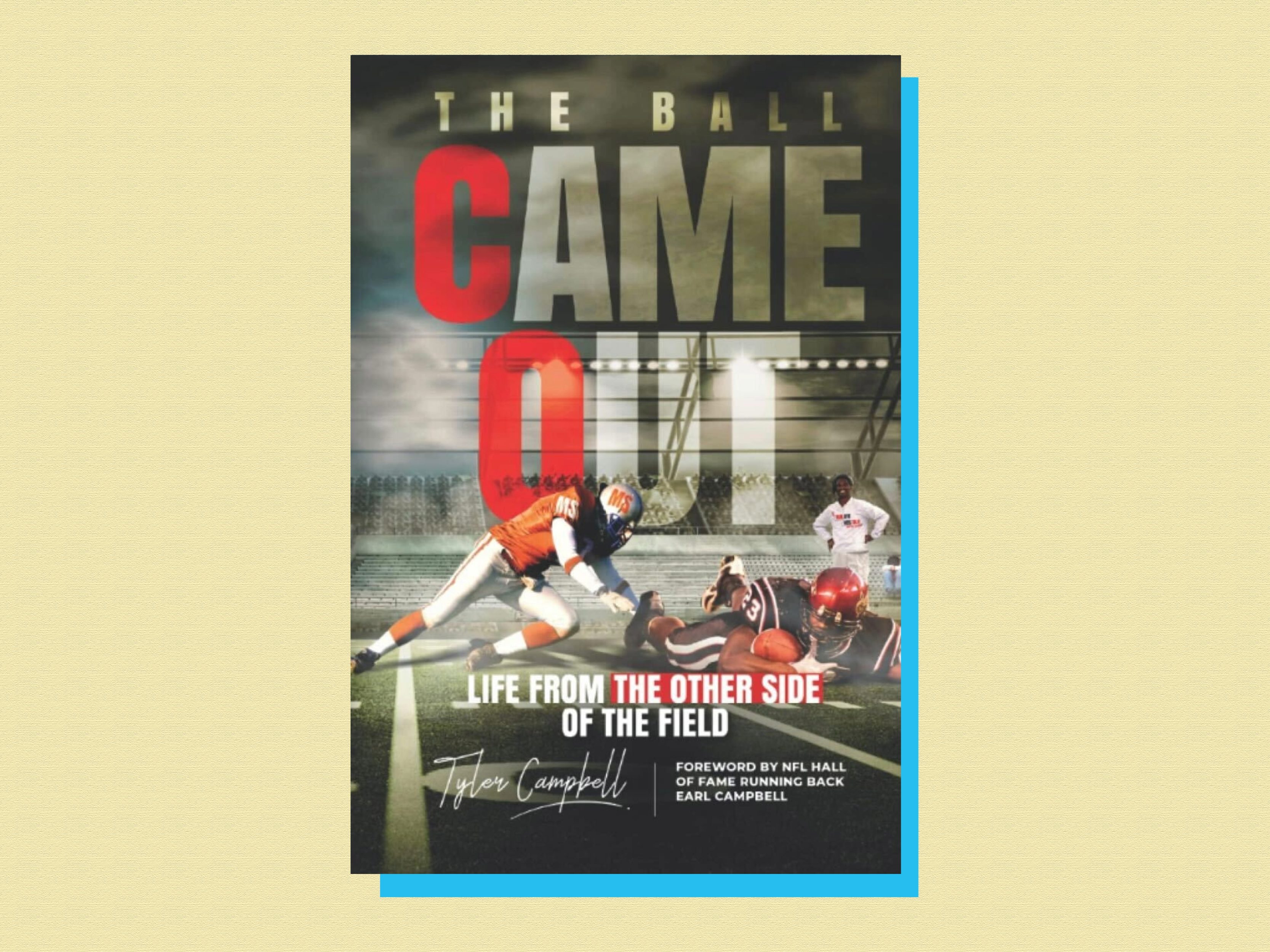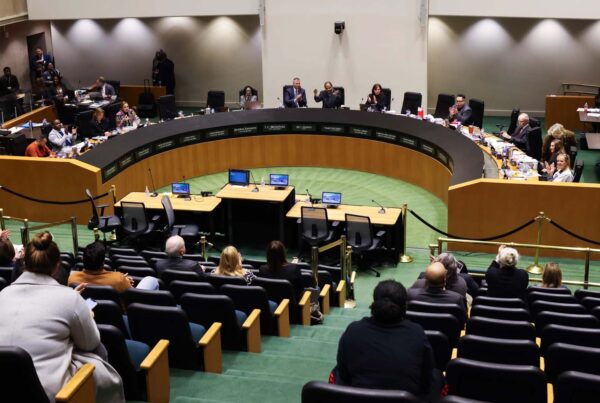Tyler Campbell’s life has been full of trials and heartbreaking setbacks – including a battle with multiple sclerosis.
But he’s persisted. The son of NFL Hall of Famer and Heisman Trophy winner Earl Campbell, he’s sharing his story now in a new book, “The Ball Came Out: Life From The Other Side Of The Field.”
Campbell said that putting his journey into words started during the pandemic, as he considered what he is leaving behind as a father and as a husband.
“As a patient living with multiple sclerosis, you start to you start to think about things, you know, with future in mind. A lot of times when people pass on or when people go different directions in life, we look at photos, and they only reveal the snapshot of the moment,” he said. “And I said I wanted more for my children, my family, than just photos. I wanted my children to have my heart. I wanted them to know my journey. I wanted them to know their family history, their ancestral makeup. I wanted them to know about adversity and how you’re not off-limits to it, but you can strive and thrive with it.”
Campbell had thought he would be following in his father’s footsteps with a career in football until he was diagnosed with MS as a college student at San Diego State University.
“I’m 21 years old, and then I wake up one morning and I cannot feel my arms and my legs. The day before, I was walking perfectly fine. And then you’re ushered into this the health care system navigation … and being Black within this country, you learn that there’s not as much data, as much research, as opposed to your counterparts with their trajectory with this disease,” he said. “So a complete whirlwind and a total shift. How do you focus on your education when you can’t function your limbs properly? What does life look like for you? Scared. Uncertainty. You feel like your your life is no longer in your hands.”
» GET MORE NEWS FROM AROUND THE STATE: Sign up for Texas Standard’s weekly newsletters
Living with an autoimmune disease in his early 20s caused him to mature very fast, Campbell said, but also to gain a lot of knowledge about the patient experience and the need for more education and more data. It also opened up a whole world that was even more fruitful than what football had given him, he said.
“It birthed me into that life of of just knowing that, hey, you have a disease; this disease does not have you. You are still open to live a life outside of the lines that you never dreamed of. And most importantly, you can walk into situations where you can welcome people and give them access to your heart to be able to love you and support you through what you’re going through,” Campbell said. “And that’s kind of the message that you want. And that’s the message you hoped that other people living with this disease – or if they’re there battling anything in life unforeseen – to not lose sight of their worth, no matter how much excess baggage life has caused them to carry.”
Campbell said he leaned on family for support and to learn the process of what self-help really looks like.
“You have to learn to open up about what you’re going through over time to be able to allow life to bring you people who could help you with this journey to be open to mentorship,” he said. “And it was a process – we’re talking about years of time. We’re talking about in the midst of crying many tears, in the midst of feeling alone and isolated.”
And the support from his dad was rooted in Earl Campbell losing his own father, a World War II veteran, from a heart attack very young.
“So before Earl Campbell, I think it’s important for people to understand that I come from a line of heroes. To understand that is to understand the heart of my father, why he spent so much time with his children, why family was so important – because he didn’t have his father for very long in his life,” Campbell said. “And a big part of that was the Earl Campbell that I got was the guy away from the football field. My father really just wanted us to see Earl Campbell the person, for us to learn how to value relationships, to walk with humility and also to be appreciative.”
Campbell said the book has also been an opportunity to give people the world that he saw his father in.
“We see people on television; we see people in limelight. And we have to remember we’re only getting a small snapshot of their life. And with me, I feel like, as sons, we got the best part of Earl Campbell that the rest of the world didn’t get access to,” he said. “The rest of the world got the autographs and the Capitol visits and the award shows, the television interviews. What we were able to receive was the guy who taught us. The first lesson I ever learned from my father was, ‘Yes, ma’am. Yes, sir. No, sir. Thank you.’ – and ‘a Campbell never quits.’ ”
Check out an extended interview with Tyler Campbell in the audio player at the top of this story.












